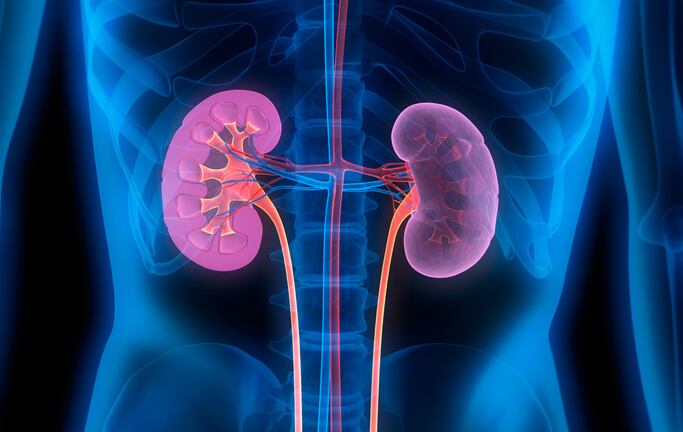The study, published in the Canadian Journal of Kidney Health and Disease, was the work of researchers associated with a university and a public kidney care agency in the province.
The researchers looked data from subjects who underwent care for kidney conditions in clinics across British Columbia. A total of 3,957 cases were evaluated, and stemmed from the time period of 2010 to 2019.
The researchers noted that patients suffering the onset of kidney failure often suffer from malnutrition and a condition known as protein-energy wasting (PEW). The International Society of Renal Nutrition and Metabolism (ISRNM) expert panel has defined PEW as a “[S]tate of decreased body stores of protein and energy fuels (body protein and fat masses).”
PEW complicates kidney treatment
The researchers noted that there is a high mortality rate among patients who have recently initiated dialysis. Part of that is attributable to the fact that many have been exhibiting PEW in the period leading up the start of treatment.
In British Columbia, unlike the rest of Canada (and unlike the United States) there is a province-wide government program that provides nutritional coaching to kidney disease sufferers. The dietitians who work under that aegis of the program evaluate patients and prescribe oral nutritional supplements if the patients are not meeting their nutritional needs with diet changes and coaching alone.
The nutritional supplements covered in the program (and included in the research evaluation) include some general nutrition boosting products made by Abbott, such as Ensure and Ensure Plus, as well as supplements aimed at renal patients or those diagnosed with diabetes. Some patients visiting the kidney clinics were also prescribed high protein products, such as Nestle’s Beneprotein whey protein powder. Other nutrition supplements might provide similar support but these products are the ones specified in the formulary of the provincial program.
The 3,957 cases evaluated in the study are a subset of the more than 26,000 patients treated for kidney disease in British Columbia during the study period. In other words, about 15% of the patients coming into the clinics needed supplemental nutrition.
Patients split into five ‘nutritional phenotypes’
The researchers assessed several outcomes for the patients over a two year period after the start of oral nutritional supplementation. Among the measures were changes in BMI and the neutrophil to lymphocyte ratio, which is a marker of systemic inflammation.
The analysis of the data revealed that the subjects fell within five different buckets, or ‘nutritional phenotypes,’ which were defined as low BMI-high NLR; hypoalbuminemia; low BMI; acidosis; and high BMI.
The researchers found that with the use of oral nutritional supplements there were statistically significant improvements on BMI and NLR ratio. This was especially true for the low BMI-high NLR group, which could be seen as the subgroup with the biggest risk of an early poor outcome for dialysis. They found that the high BMI group, which was the smallest subset of the whole, had the least to gain from oral nutritional supplementation.
Call for personalized nutrition strategies
As with many other studies of nutritional interventions, the researchers found the heterogeneity of the study population made coming to a one size fits all solution nigh on impossible.
“One of the additional findings of our study is that it may be important to establish nutritional phenotypes, and that cluster analysis appears to be a useful method of integrating multiple variables to establish these phenotypes. From a clinical perspective, our demonstration of the heterogeneity of response to ONS underscores the potential of developing personalized nutritional management strategies to optimize patient outcomes,” they concluded.
Source: Canadian Journal of Kidney Health and Disease
https://doi.org/10.1177/20543581211069008
Trajectories of Nutritional Parameters Before and After Prescribed Oral Nutritional Supplements: A Longitudinal Cohort Study of Patients With Chronic Kidney Disease Not Requiring Dialysis
Authors: Wong MMY, et al.



